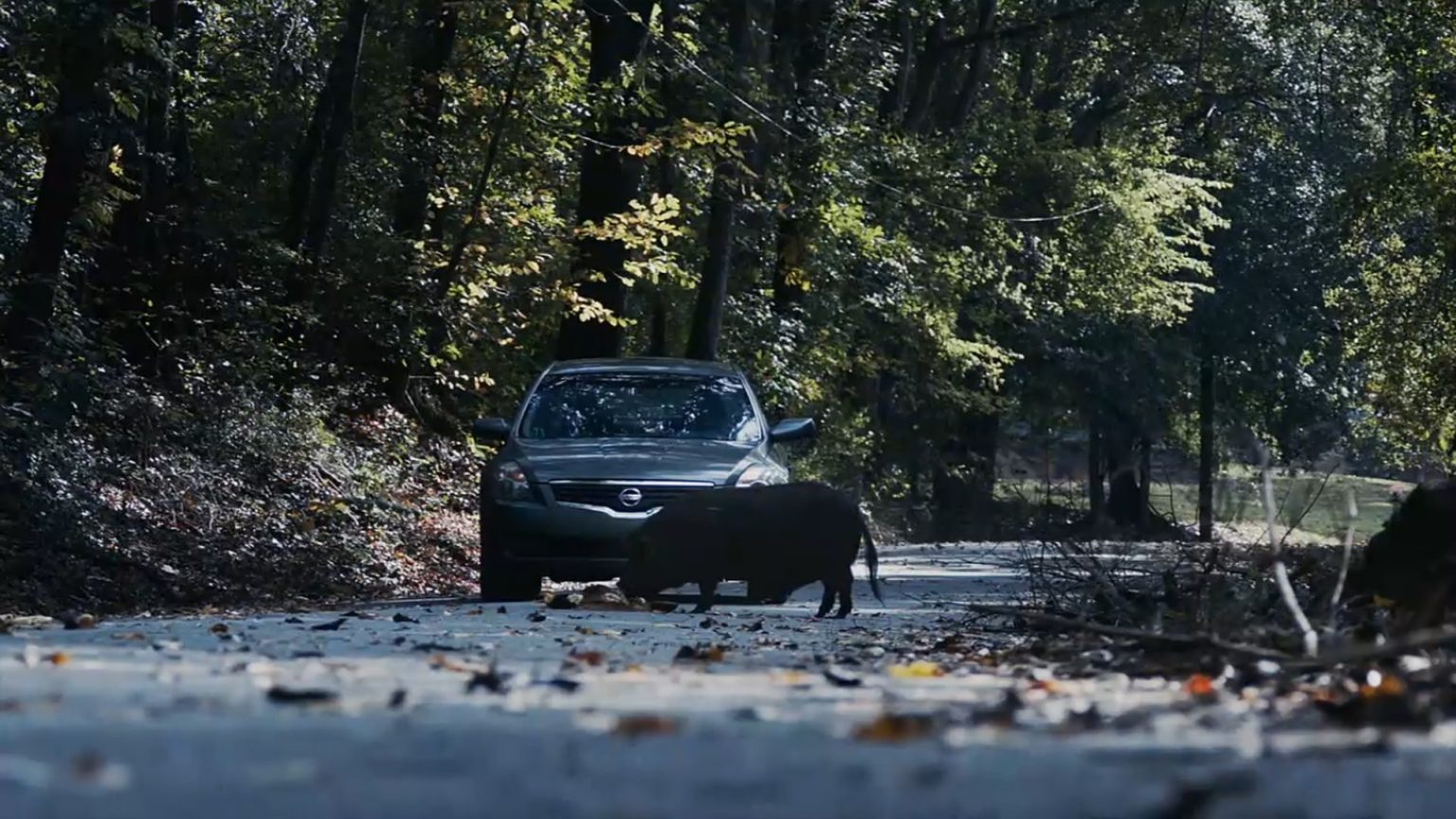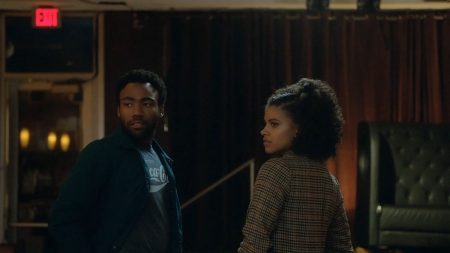Love and Racial Division Highlight Atlanta’s Best Episode This Season
Hot off the heels of Atlanta Season 2’s excellent third episode, we have been graced with greatness once again with “Helen.” While “Money Bag Shawty” was a superb showcase for Atlanta’s humor and style, “Helen” offers a side of Atlanta we’ve been sorely missing since Season 1: drama.
“Helen” gives us a brand-new perspective into Earn and Van while throwing the couple’s relationship into question. Between its Get Out-inspired scenario, its game-changing character development, and its heart-wrenching ending, Robbin’ Season’s most serious episode to date also happens to be its best.
Let’s dive in.

Tasteful Homage
For the first time this season, Atlanta opts out of the traditional lengthy opening sequence with “Helen.” Instead, we open on Earn and Van “getting personal” under the covers at home. While the scene is brief, it does its job brilliantly by putting us into a false sense of security. Surely, things are going perfectly for the intimate couple who, just last episode, had been enjoying each other’s company as if they’d never been apart. It’s also shot incredibly well, with viewers “peeking in” from afar—on a scene they probably wouldn’t want their kids seeing—before the camera cuts away to the title card.

However, this opener also serves a larger purpose as it transitions into a scene with Earn driving a weed-smoking Van into the suburbs for a weekend in Helen, a small German-inspired town. The couple is going to Helen to celebrate “Fastnacht,” a southern German festival that precedes the Christian observance of Lent. As Van expresses her concern that Earn “won’t like it up there” on account of how “traditional” the German festivities are, we start to see a new dynamic building between the couple. There’s the suburban, Helen-raised Van, and the urban, street-raised Earn; they won’t always see eye-to-eye, in large part due to the differences in their childhoods.
An interesting point to remember is the fact that Earn went to Princeton University, only to drop out midway through—a seeming reminder that he didn’t fit in with the school’s white-dominated culture. While Van never went to a prestigious school like that (as far as I remember, it’s never specified where or even if she went to college), her background is supposedly one of higher privilege, better education, and perhaps most-importantly, being surrounded by white people all her life. However, to categorize Van as “black on the outside, white on the inside” would be to completely miss another huge facet of her character, which we will discuss later in the review.
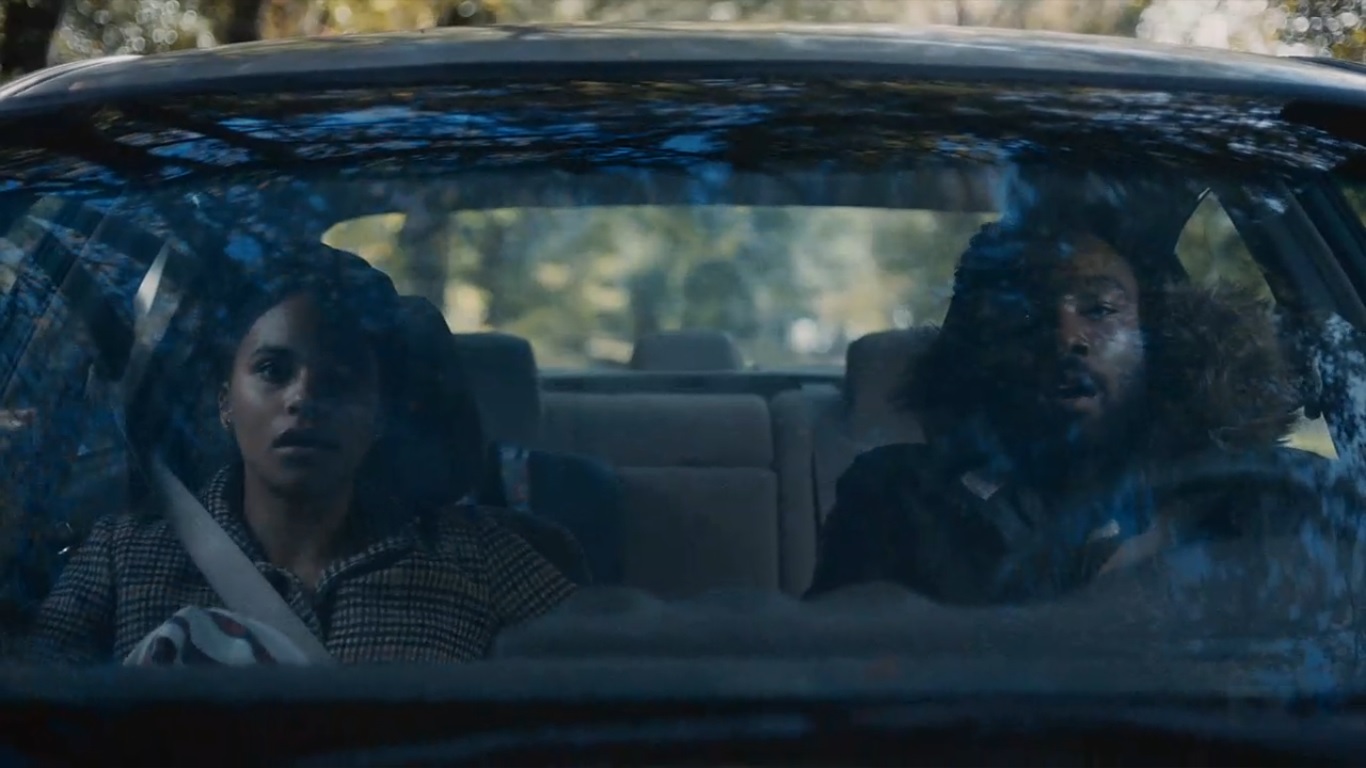
For now, at the very least, we’ve started to see the tension between two different backgrounds: white, and black. If the idea of two people from different backgrounds driving out into the boonies to experience white, suburban culture hadn’t brought to mind another massive black-directed success for me, then the moment when Earn and Van skid to a stop to avoid an animal in the road certainly did.
Yes, it would seem as if Jordan Peele’s critically acclaimed Get Out was a huge influence for Donald Glover’s “Helen,” from the eerily silent drive out of Atlanta, to the scenario of visiting Van’s hometown, to the sudden presense of a hog in the road. While Atlanta is known for its well-delivered homages to other fictional stories and cultural events, its use of Get Out in “Helen” is particularly genius. It sets viewers up, much like that DATY-filled opener, into a false sense of emotion—first we felt safe, now we feel uneasy. As we’d soon find out, however, “Helen” has far more up its sleeves than jump scares and white stares.

Home Sweet Home
We do get some white stares, thought, and they’re hilarious. Just like how Get Out developed a setting in which there’s this ever-present feeling that blacks aren’t welcome, “Helen” does the same by having Helen shopkeepers gawk at the presence of Earn and Van strolling to the community center housing the “Fastnacht” festivities.
As Earn and Van walk, we get more crucial insight into Van’s upbringing. While the majority of “Helen” was and still is white, Van’s maintained a relationship with her childhood friend, Christina, who is half-black. On the subject of feeling isolated in her blackness in a dominantly German town with German culture, Van tells Earn that she’s “kind of like the Serena Williams of the festivities: they hate, but they can’t deny the stats.”
From the moment the two enter the building where the celebration takes place, we see the discomfort Earn feels being there. As Van reveals her traditional German dress to Christina and her white husband, Dave, Earn stays in his typical street clothes (“That’s not me.”), despite Dave’s insistence that he dresses up. It’s only after a woman awkwardly mistakes Earn for being in black face (“You look so good!”) that he caves with a hilarious “Where was that mask you were talking about?”

Of course, the mask ends up being something far more outlandish than the idea of a black man at a German Fastnacht—a Jason Voorhees hockey mask. While serving as a hilarious moment in an episode that had surprisingly few “chuckle moments,” Earn as Jason also helps to drive home the fact that he feels like an outsider out in Helen.
On the other hand, Van feels right at home. She picks up immediately with her friend Christina as if time hadn’t passed since the last time they spoke. She poses enthusiastically for a photo in her, Christina, and Dave’s outfits. She claps and shouts emphatically at an announcer saying, “I don’t know about the rest of you, but I’m ready to Hootz-Kutz,” all while Earn (and all non-German-speaking viewers) looks on in confusion.
It’s in these moments that we realize how integral a part of Van’s life her upbringing in Helen has been. While she herself may not be German (although, who knows, maybe she is), we see that she’s fluent in the language and that she’s spent time abroad in Germany for a period of time. She truly seems to love the language and culture behind both Germany and Helen, and it’s fascinating to see a side to Van that goes beyond the stereotypical “black city girl” caricature.
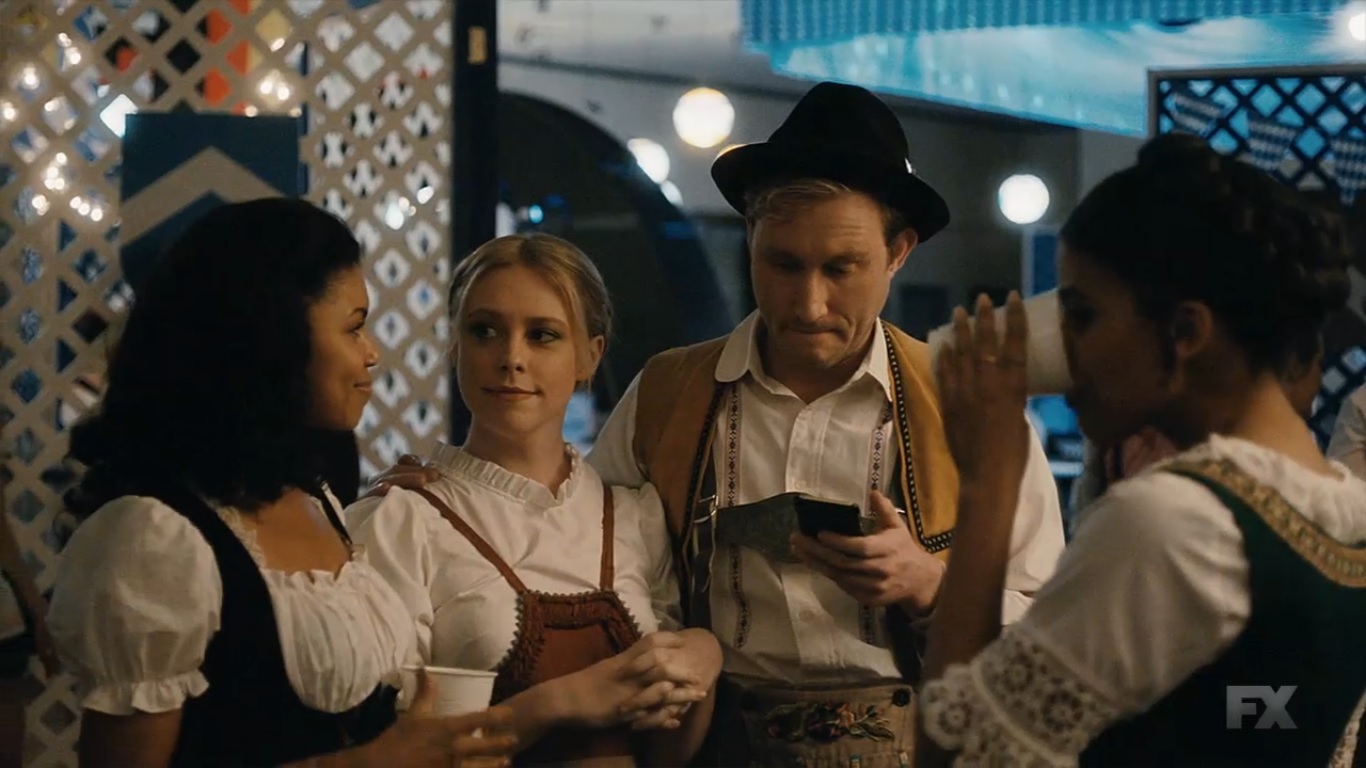
Trouble in Paradise
Despite Van’s comfort returning to Helen, we see that not all is as it seems, especially regarding Van’s relationship with Christina. After Van gets increasingly frustrated with Earn’s unwillingness to show interest in “Fastnacht,” especially the dancing competition known as “Faschingstanz,” she goes off to regroup with her “people,” so to speak.
However, upon Van returning to where she feels at home, we have the carpet ripped under us in the first of many heartbreaking moments to punctuate “Helen” and its 26 minute runtime. As Van confides in Christina about her issues with Earn, Christina gets distracted talking to one of her white friends, Flo. After the two share an extended greeting and talk about another girl named “Jen” (presumably white), Christina half-heartedly introduces Van to Flo as “Lottie’s mom.” Tek, Flo’s husband, refers to Van as “Earn’s girl,” and Flo smatters her with superficial compliments about being “so lucky” to have been a teacher and now a stay-at-home mother.
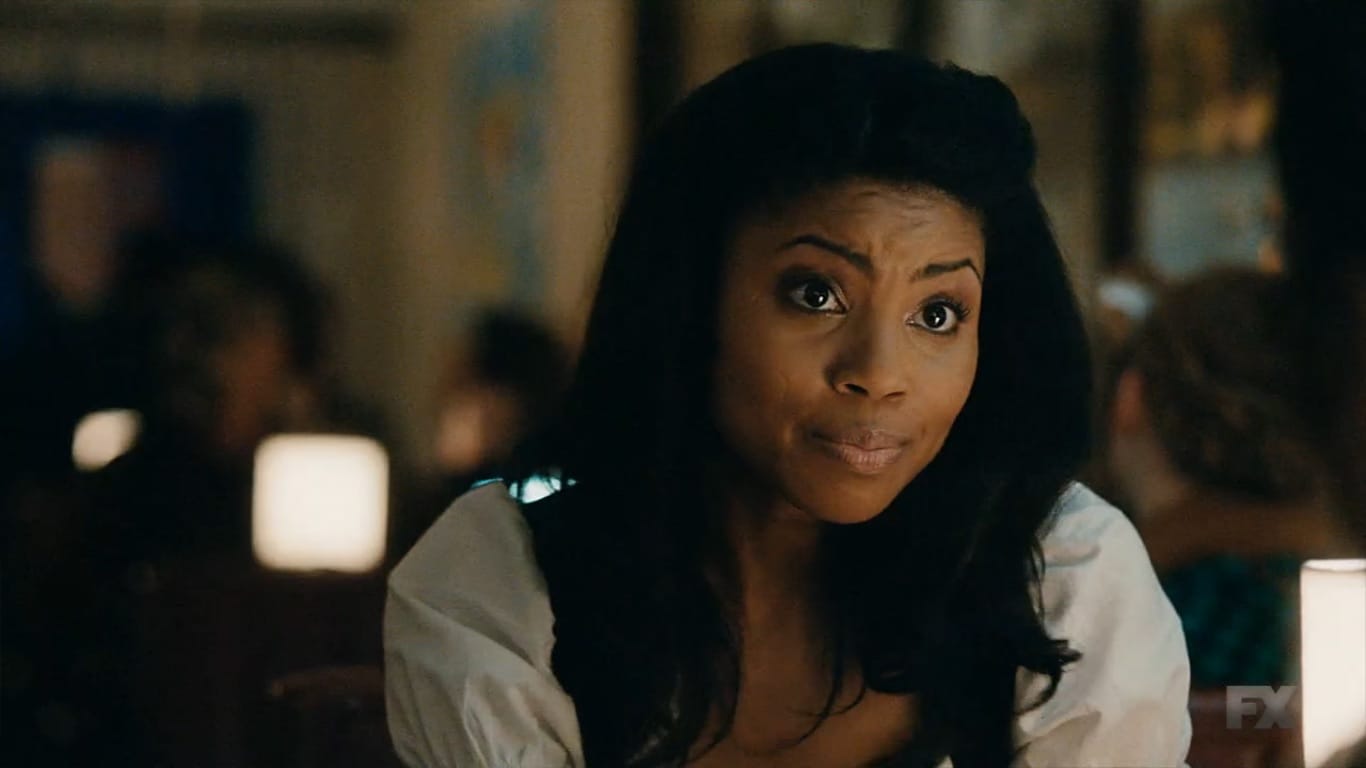
Irked about being so easily cast aside, Van confronts Christina, explaining that she’s more than just “Lottie’s mom” or “Earn’s girl.” Christina then proceeds to clarify what she had meant, drawing a shockingly blunt line between her and Van: she “chose white,” while Van “chose black.” As ironic as it is for a person like Christina to “whitesplain” something to Van when both people are, in fact, black, there’s so much more to this conversation than that.
Van very clearly values her Helen-heritage as much as her Atlanta-adulthood, so when she’s labeled as the cookie-cutter “black city girl” persona I mentioned before, it justifiably upsets her. Despite Van simply wanting to “be herself,” she’s found herself rejected by people like Christina and Flo who force people into boxes that divide rather than bring together. Motivated not to be a “baby mama,” Van comes away from this shocking conversation more determined than ever to break away from the part of her that played into that social box.
Of course, that means addressing her issues with Earn.
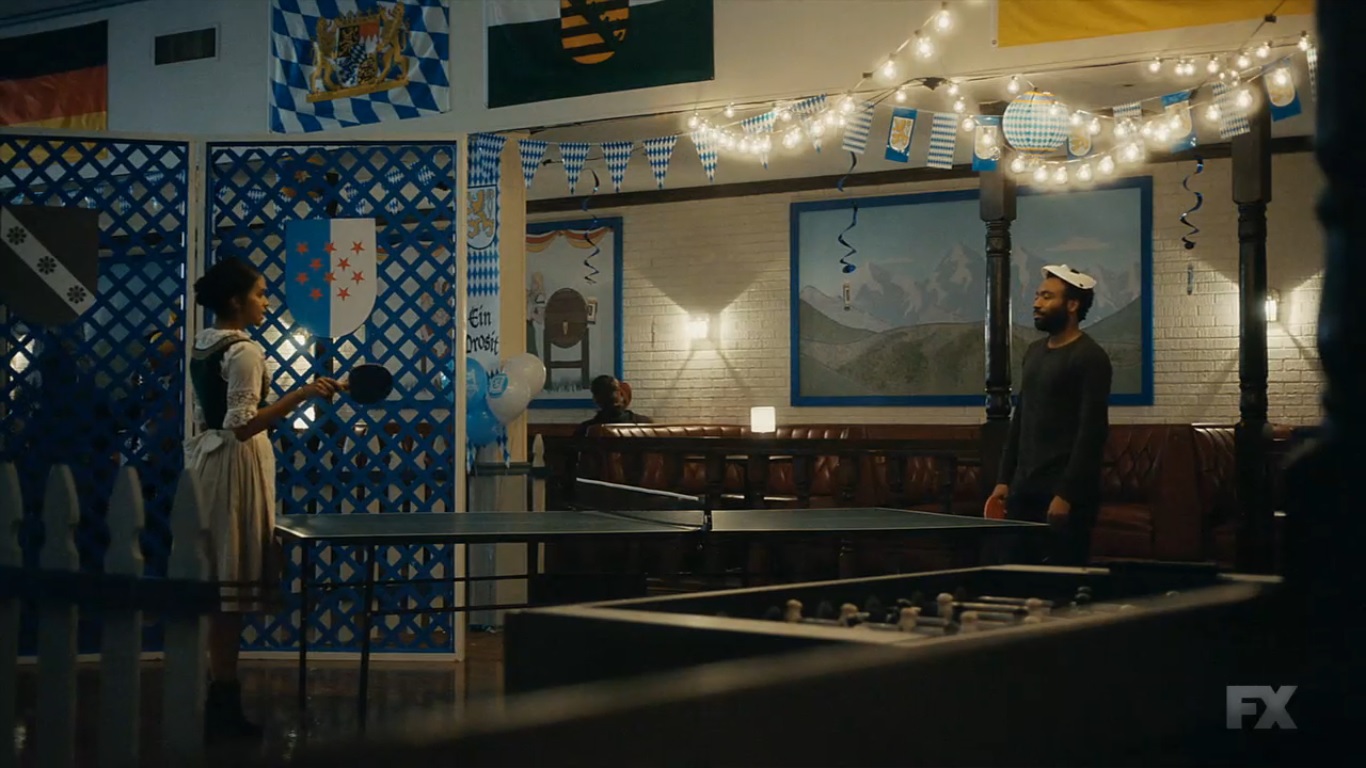
A Broken Relationship
While it was saddening to see Van’s day go from absolute jubilation to feeling useless and discarded, “Helen” had more in store for viewers than that. With all this tremendous character growth for Van, we had to see it cashed in with some sort of major action by the end of the episode. As we’d soon find out, that action would be in the form of Van and Earn breaking up.
The breakup centered around two parallel games of ping-pong, the first proposed by Earn and the second proposed by Van. Initially, Earn had asked Van to play him in table tennis as a way of curing his boredom, explaining, “It’s the only white game I know.” After promising to compete in the “Faschingstanz” without complaints if he were to lose, Earn gets served (pun intended) by Van and, to our horror, acts like a sore loser. For perhaps the first time this season, we see Earn clearly in the wrong, going against his girlfriend because he feels humiliated and betrayed.
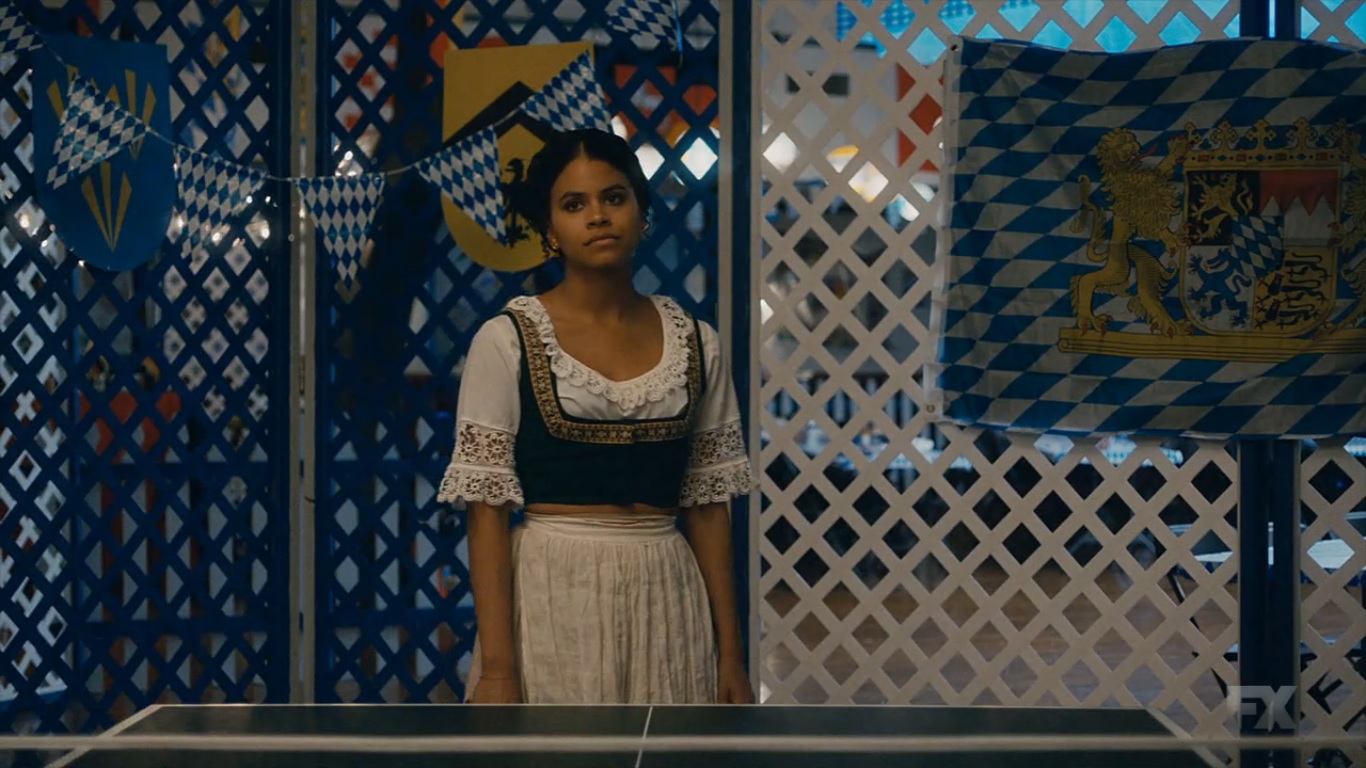
As we see this unfold, Van calls it how it is (“You’re being a fucking baby.”) and explains that she always does what Earn wants, citing the strip club from “Money Bag Shawty” as prime example number one. While it was satisfying to see Van call Earn out on parts of his character that hadn’t been explored this season up until now, it was excruciating to see the couple pull farther and farther apart from each other.
By the time Van and Christina had had their heartbreaking conversation, we knew things were only going to get worse for Vanessa and Earn. As Van approaches Earn at the ping-pong table at the end of “Helen,” we see a very different picture than the fun-loving couple that opened the episode. After Van explains that she wants to be “valued as a human being and not as an accessory that you can fuck,” Earn replies with a cold, startling retort, saying that “this arrangement works for me.”
Again, “Helen” expertly manages to make Earn into the antagonist of the episode, rather than the protagonist we so often consider him to be. Before he and Van had even picked up the paddles to play the “rematch” Earn had stubbornly demanded, I knew their relationship was over. And while the breakup ends up happening in part due to the events in Helen, it’s clear that this was something long overdue for the on-again, off-again couple—as painful as it is for us viewers.
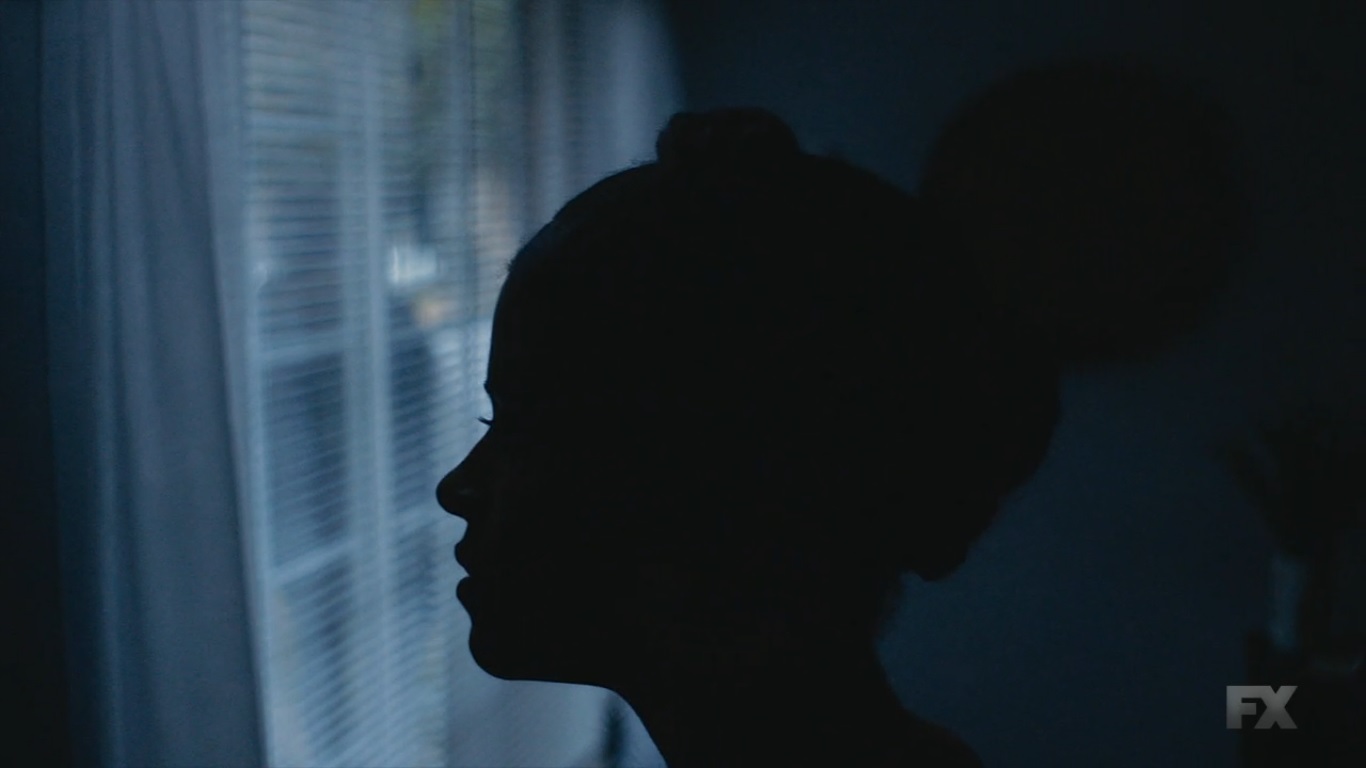
Final Thoughts
“Helen” is Atlanta’s strongest episode to date this season. While it sets aside much of the humor that has made the show such a staple, it replaces it with some much overdue character development for two of its most central characters. By stepping away from the events in Atlanta to home in on the quiet, isolated town of Helen, “Helen” succeeds in crafting a tear-jerking tale of love, loss, rejection, and ambition.
While it’s unclear what’s in store for Van following the events of this episode, I can only hope that she and Earn can overcome their differences and find a way back to one another. In the meantime, it looks like Earn is hurtling down a path of apathy and self-destruction that could have massive ramifications by the end of the season. If “Helen” is any indication of what lies ahead, we’ve only just seen a glimpse of the real “Schnappviecher” monster on the loose.
Score: 9.6/10
David is the founder of The Punished Backlog. He has a problem finishing games he starts.
Just beat: Hollow Knight: Silksong.
Working on: Yakuza 0, Iconoclasts, Metroid Prime 4: Beyond.
Can't wait for: Demon Tides.
Follow David on Twitter at @David_Silbert to keep up to date with all things The Punished Backlog.


